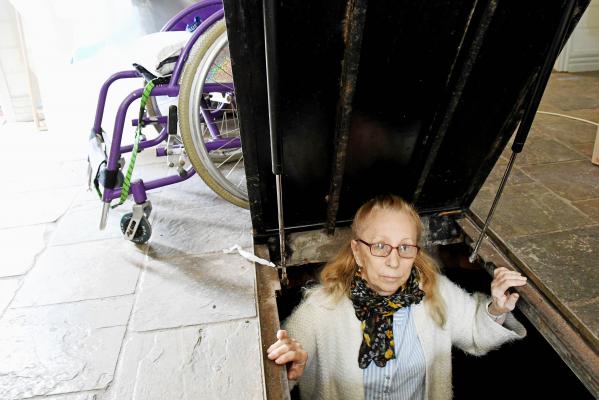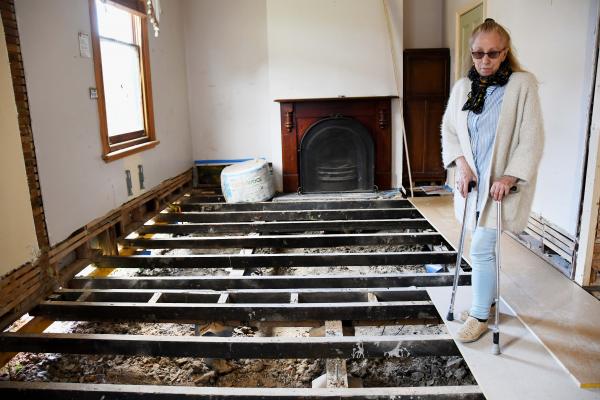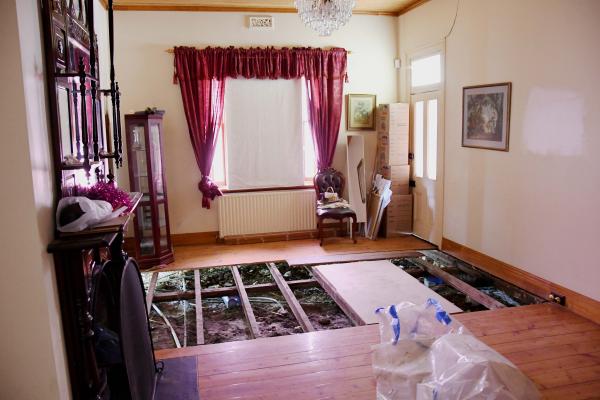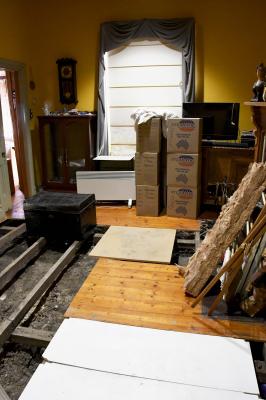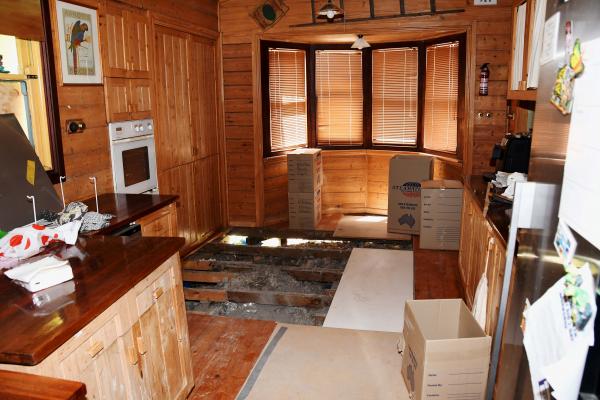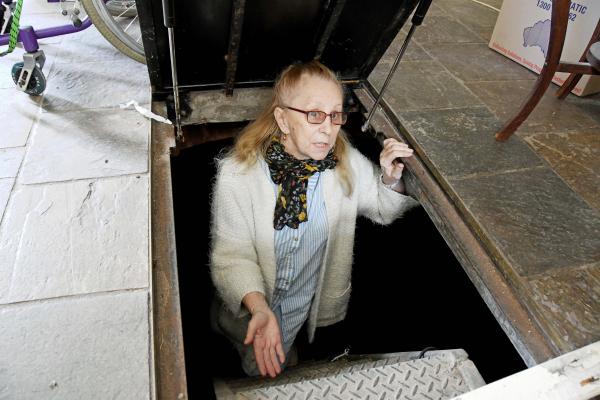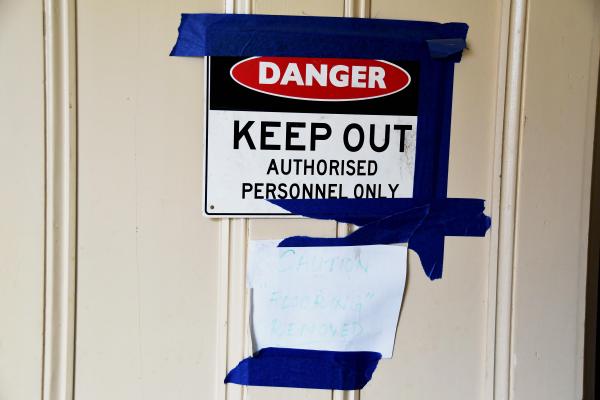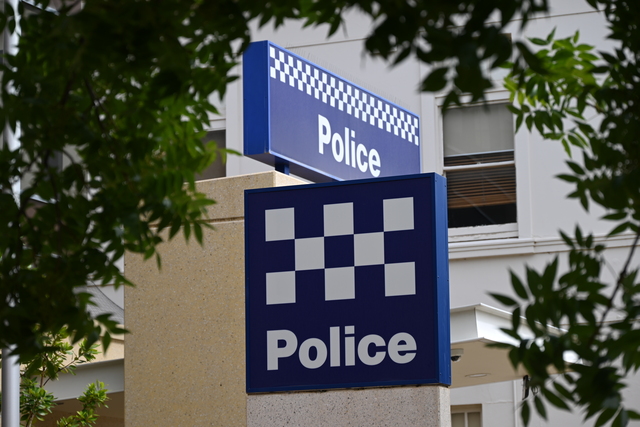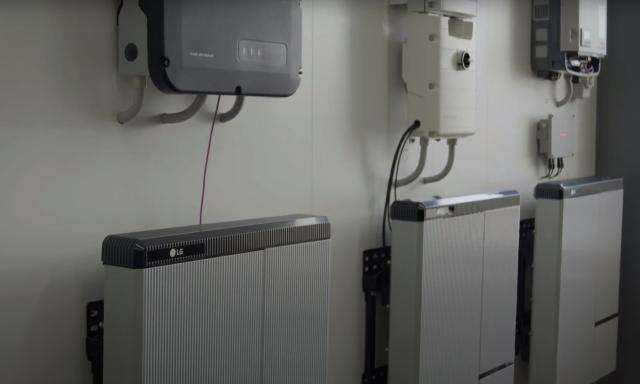A Dandenong disability pensioner’s home remains gutted and uninhabitable 16 months after being flooded by raw sewage.
Sharon Harris, along with other neighbours, was the victim of overflow from a blocked main sewer in nearby Railway Parade on 13 October 2019.
After this worst nightmare, Ms Harris has been bogged in plumber and insurer disputes while her home stands in extensive disrepair.
Her home remains bare of floorboards. Despite the home being scrubbed down at least four times, a faint pungence remains.
“It is not fair and it’s not right.
“Why should I be suffering because South East Water aren’t maintaining their pipes?”
The first hint that something was wrong was the sickening stench, then the effluent “bubbling” into her bathroom from drains and basins.
Under her house, she could hear a “waterfall”. Her cellar was being filled with waste water, three metres deep.
For two nights, she says she slept amongst the stench because South East Water wouldn’t put her up in temporary accommodation.
Despite sealing her bedroom door with tape, the “putrid smell” got in. It hurt her throat and made her vomit and cough up blood.
She says South East Water washed its hands of the mess, and advised her to contact her insurer.
A South East Water “manager” visited the site, telling her that the smell was “not that bad” and she could still stay there.
“I was already unwell. I suffer from hayfever and asthma, and they expected me to live in the house.
“I told him you try closing the doors and living in there.”
A cleaner who drained out the cellar told Ms Harris he’d never seen so much sewage in a home.
“The smell nearly knocked him over backwards.
“He said it was lucky you were home, it would have otherwise been flooding your house.”
According to South East Water, the Railway Parade sewer blockage was caused by a “foreign object” and “possibly some tree roots”.
The blockage caused an “internal spill” at several nearby properties on Carson Street.
South East Water cleared the blockage, cleaned up and disinfected the properties. It later installed an ‘Advanced BlokAid’ device to monitor the Railway Parade sewer and issue alerts for any blockages.
As is its “standard” process, South East Water told Ms Harris to contact her insurer CGU for a professional clean, a damage report and to repair the damage.
Acting customer service general manager Charlie Littlefair said Ms Harris’s insurer was “responsible for assessing the conditions of her property and/or arranging any repairs”.
Since then, CGU has ordered a series of endless reports and re-assessments.
Ms Harris has also been embroiled in a VCAT dispute with a plumber who she says offered to fix all the pipes cracked under her house for $12,000.
She says the plumber didn’t complete their pledge, leaving cracked pipes under the concrete unfixed.
Last week, her insurer CGU last week agreed to pay for the plumber’s repairs.
It would also help pay for Ms Harris’s temporary accommodation in Quest Apartments – after it stopped covering the cost in October 2020.
CGU told the Star Journal it would repair four bedrooms, the hallway and dining area, including painting and plastering.
It would pay extra costs for dry cleaning, pool cleaning and settlement of Ms Harris’s wines.
Before then, CGU has kept the home’s contents in storage, arranged CCTV after the unoccupied site was burgled and appointed a hygienist and engineer to ensure works were “in line with current standards”.
However, it’s unclear who will pay for the upcoming repair of cracked pipes under the home’s concrete.
Or the removal of soil from Ms Harris’s yard that she fears is contaminated.
CGU has ruled out paying for the restumping of Ms Harris’s home due to what it says is “pre-existing damage”.
CGU argues that the timber stumps and bearers’ were “worn out” and “non compliant” so the repairs “could not be warranted”.
Ms Harris says the insurer is arguing her home was “too low” and inadequately drained. When she moved into the home 20 years ago, she installed downpipes and agricultural pipes at the home.
She says, even after rains, the house remains dry underneath.
She lists other damage not covered by CGU, such as her office area, the removed “linen press” cupboard, slate floors in the family room as well as soiled blinds and carpet.
“And they don’t compensate you for the sickness and stress caused by this.”
CGU is offering a cash settlement once Ms Harris works out repairs to the “pre-existing damage”
“We understand this has been a difficult time for our customer. We are offering additional financial assistance for the temporary accommodation while they seek to rectify the pre-existing damage,” a CGU spokesperson said.
“Our assessor and builder will then inspect the property with a view to progressing the claim related repairs.”

